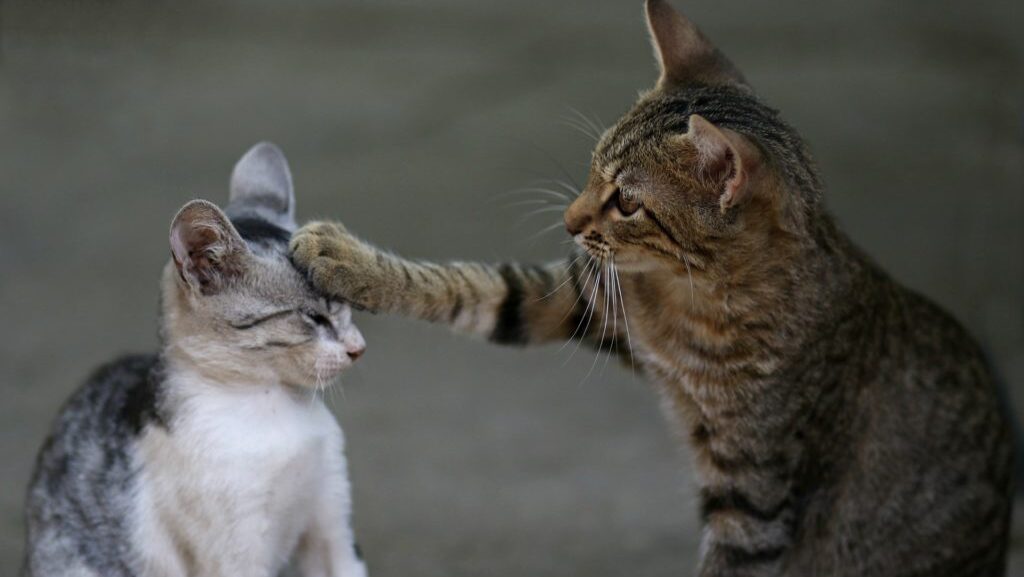Is it always a good idea to do the best you can do? This question came up recently in a therapy session and catalyzed me to look more deeply into the nature and implications of this common assumption.
The man with whom I was working felt it essential that he always do his best. In his case, this inclined him to constantly measure himself as to whether he had acted at this optimal level. He confessed that very often he was stuck in analyzing the past, debating whether his words or behavior were the very best choice. When he wasn’t stuck in that groove, he was typically fretting over future decisions, concerned that they also might not be the very best choice. The nature of his inner voice was highly self-critical, addicted to measuring his actions.
Doing the best you can sets up a never-ending competition within one’s own psyche. Competition has its place in our culture, but can you imagine never getting a time out from competing? People with such tendencies incline toward being perfectionists, and perfectionists are rarely present, as they ruminate the past and worry about the future. (Read my post on The Problem with Perfection here.)
Interested in bespoke marriage and relationship counseling from Mel Schwartz? Reach out!
This man’s wife often complained about his not being emotionally available, and we can readily imagine the impact that his being wed to doing his best might have on his marriage. In fact, I’d argue his was more wed to this compulsion than to his wife.
I am not proposing that we shouldn’t selectively choose endeavors in which we really might try our hardest. Selectively doing your best makes sense. But proclaiming it as our mantra makes life look like a runaway competition. I believe that if we integrate the wish “I want to be present” alongside “I want to do my best,” we’d begin to enjoy a more balanced life. And when we do choose to proclaim that we did our best, we should truly mean it.
What about Fun?
I have encountered so many people who feel that their performance overarches their enjoyment, particularly in sports. When I was a child, our engagement in athletics was primarily for recreational purposes. The goal was both athletic and fun. Excelling at the sports wasn’t necessarily more important than enjoying the game.
Now, many people tell me that they won’t participate in a sport unless they can excel. When did performance become more valued than having fun? I play golf a few times a year with some good friends. I’m mediocre at best as a golfer, but I delight in the fun and the relief from everyday pressures that it offers. I couldn’t imagine enjoying the game if I had to be good at it. Why do we have to be good? Our cultural penchant for winning, excellence, and maximum performance drives us into a neurotic addiction to self-measurement.
I was recently having a conversation with a young man who was a seeded tennis player. After a while, I came to inquire about his interest in other sports. As we talked further it became very evident that he would only engage in activities in which he excelled. I asked him why that was so and he seemed taken aback by my question. It was nonsensical to him to play at a sport at which he wasn’t superlative. He protested, “What would be the point?” “To have fun,” I retorted. He stated that having fun at something wasn’t his goal; excelling was. I began to see his point. His priority was in excelling, not in enjoying himself.
The word “play” shouldn’t appear in front of the sport for him, as in “playing” tennis. He had to be the best. This activity had little to do with play. I began to consider that, as a culture, we might be losing our ability to play as we subordinate it to winning and excelling. How might that affect our well being? The absence of play sounds rather depressing doesn’t it?
I have never been an accomplished athlete, but I have had immeasurable joy and treasured memories from the pure enjoyment of play. If while playing at a sport I was busily judging whether I were good enough to play, I’d never be present for the bliss of the experience. I have a treasure trove of cherished memories from playing baseball as a boy and young adult. My joy was derived from being in the process of play, trying to win, the camaraderie and spirited engagement with my teammates. We all want to do well, and most of us want to be the best – that’s quite natural. But to refuse to participate because you’re not top tier is quite sad.
I see our culture moving inexorably in this direction, and it screams to me in alarm that we are heading into a very dysfunctional area. I fear that our society is falling into a pathological condition when high levels of performance become the goal, and simple playful pleasure is no longer desirable, let alone permissible. A recent article in Scientific Mind suggests that the emotional and psychological well being of a person might well correlate with how much free play they had in their childhood. If this is valid, we are in deep trouble. And we are perhaps setting up an abusive deprivation of fun for our children.
If you’re of a certain age, you might well recall the notion of free play. My friends and I used to have pick-up games of baseball, basketball or football. They were spontaneously motivated. One kid’s inspiration led to a chain of phone calls and we all managed to meet at a ball field. The immediate concern was whether we had enough players. So the effort to round up sufficient people was very inspired. There was a co-operative, communal effort, which felt really satisfying. And of course, we tried real hard to have our team win. But nobody stayed home because they weren’t good enough. It was simple, unadulterated fun. And it taught us so much about social skills. No coaches, parents or organizations to dictate the rules. We had the opportunity to create them for ourselves. And we certainly benefited from that.
The current generation of children and adolescents are deprived of play. Their experience of what should be play becomes more work, as it is over-organized, scheduled and ultimately graded upon performance. The absence of play in a child’s life is somewhat cruel. To rob our children of being children – as we propel them toward the cultural edict of excellence – demands some serious reconsideration.
Having to do your best implies that you are suffering from a compulsion. In this case, you aren’t acting from free will, but from the compulsion. Trying to do your best selectively and with discrimination is laudable and leaves you in charge of your experience. Life mastery requires balance. Freeing yourself from compulsion is necceasary to enable this shift.
More from Mel…
Podcast #084: The Power of Authentic Self Esteem (Encore Presentation)





What a helpful discussion, Mel. I liked and related to your sports examples, and toggle *trying* versus *having* to do my best in business all the time. Is my new app perfect? Or is it good enough now to release, and it can be improved as a result of market feedback? Are there mistakes in it? They should be fixed. Is each element the best it can and ever will be? No, but they’re good enough to release.
I will say, for me in sports or the arts, that I like to excel because I revel in the joy of being in flow, and not consciously having to coordinate too many different inputs (as with a golf swing). It’s different than perfection. I, as a person, wouldn’t enjoy golf twice a year. I’d be frustrated. But I don’t need to be Tigress Woods either. I like lessons and skill-building to the point where my proficiency crosses over to flow, or at least less struggle. The play and fun are in the execution. I see, and appreciate now, thanks to your discussion, the difference between that skill building and the kind of perfection you describe where it goes overboard, stops being fun and joyful, and becomes a grim goal of conquering. Or getting beyond reproach.
Susan, than ks for sharing your thoughts, they are very helpful.
This is a great article Mel and a good topic to bring up. Parents seem to feel as if they must have their kids in every activity they want and then find that they don’t have a life. I think this is because they are working and need something to pacify the kids with because they are too tired at the end of the day. This is different from your parent who lived at home and said – get out and play. What the spontaneous play did was teach us democracy, leadership, rules, creativity and independence among other things. Now kids are just learning to be a corporate player within the hierarchy. A yes person rather than a thinker.
Terrific posting and great food for thought, as always! I am moved to comment because I have always used this exact phrase — “Just do the best you can” — with my children, but rather in the hope of the moderating that self-critical voice. In our home it carries the connotation of, Just do the best you can within reason — i.e., one cannot excel at everything, and doing “the best you can” is terrific! This most often comes up in the face of academic stresses, when I’ve always wanted my kids to understand that if you’re going to class, doing the homework, and putting in the time to try to grasp a particular subject, you can rest assured that you have done your best, no matter the grade you receive. Similarly, I have learned to be gentler in my expectations of myself – knowing I have done something to the best of my ability in that moment has come to be, more often than not, just fine.
Lastly, I heartily concur with you on the notion that it’s a shame most of us are not encouraged to do things unless we excel at them. Too often I meet people who say, “Oh, I love to draw/sing/dance! But I’m terrible at it, so I don’t do it much.” That never fails to make me feel sad, and wonder why our culture imposes such a response upon us. Many years ago I met a young man from another country who spontaneously burst into song at a party I attended; his singing was not melodious, but he sang with great enthusiasm. Someone commented, “Wow, your singing is awful!” — to which he replied, “I know, but I LOVE to sing!” — and he continued to do so. That moment has stayed with me…what joy!
Risa, Yes I too love to sing even though it empties the room!
Thanks Mel for bringing this to our attention. I agree with you on that we should have a more playful attitude. Playful includes fun, fun is part of the joy of life. If you do things without fun, the joy of life is overlooked. And which meaning is left when the joy of life is not present in your actions? Joy and fun do not mean that you take things less serious, on the contrary. Happiness and fullfilment are main results when you include the ability to play. When your goal is only to excel, you are set up with only one chance of achieving your goal and many chances to fail on them; why put yourself in such a position???
In my work as a coach I often simulate situations by playing them with my clients. Often I hear them say at the beginning: I cannot play….! What they mean to say is that they lack the ability to copy perfectly the situation. When they allow themselves to handle situation playfully they often become very creative, get a good view on possibilities, and above all they experience their vivid connection to the subject. If we want a better life, we should allow ourselves a being more playful!
Rudd, At times play can be more gratifying and soul enriching than excelling.
This man’s wife often complained about his not being emotionally available, and we can readily imagine the impact that his being wed to doing his best might have on his marriage. In fact, I’d argue his was more wed to this compulsion than to his wife.